
Viscount Bolingbroke is a current title in the Peerage of Great Britain created in 1712 for Henry St John. He was simultaneously made Baron St John, of Lydiard Tregoze in the County of Wilts. Since 1751, the titles are merged with the titles of Viscount St John and Baron St John in the same peerage.

Baron Kilmaine is a title that has been created twice, both times in the Peerage of Ireland. The first creation came in 1722 in favour of the soldier the Hon. James O'Hara. Two years later he succeeded his father as Baron Tyrawley. However, both titles became extinct on the second Baron Tyrawley's death in 1773 without legitimate sons.

Baron Hotham, of South Dalton in the County of York, is a title in the Peerage of Ireland. It was created in 1797 for the naval commander Admiral William Hotham, with remainder to the heirs male of his father. Hotham was the third son of Sir Beaumont Hotham, 7th Baronet, of Scorborough, and in 1811 he also succeeded his nephew as eleventh Baronet. Lord Hotham never married and on his death in 1813 he was succeeded in both titles by his younger brother Beaumont, the second Baron and twelfth Baronet. He had previously represented Wigan in the House of Commons.

There have been three baronetcies created for members of the Bacon family, all in the Baronetage of England. As of 2008, one creation is extinct and two of the creations are extant. The extant titles have been merged since 1755.
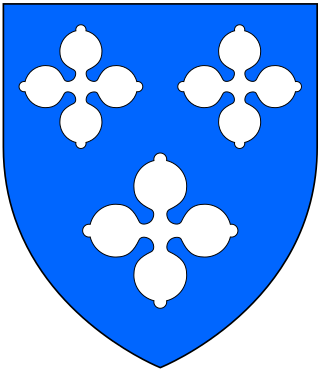
Viscount D'Abernon, of Esher and of Stoke d'Abernon in the County of Surrey, was a title in the Peerage of the United Kingdom. It was created on 20 February 1926 for the politician, diplomat and writer Edgar Vincent, 1st Baron D'Abernon who had been created Baron D'Abernon, of Esher in the County of Surrey, on 2 July 1914. In 1936 he succeeded his elder brother as sixteenth Baronet, of Stoke d'Abernon. All three titles became extinct on his death in 1941.
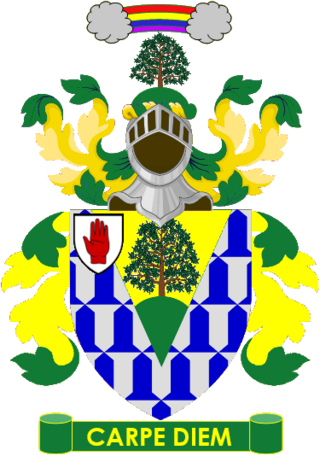
The Wigan Baronetcy, of Clare Lawn in Mortlake in the County of Surrey and Purland Chase in Ross in the County of Hereford, is a title in the Baronetage of the United Kingdom. It was created on 9 March 1898 for Frederick Wigan, a Director of the North London Railway. The presumed 6th Baronet, listed in Debrett's Peerage (2015) as the son of the 5th Baronet, has not successfully proven his succession and is consequently not on the Official Roll of the Baronetage.
Sir John Rogers, 3rd Baronet was a British lawyer and politician.
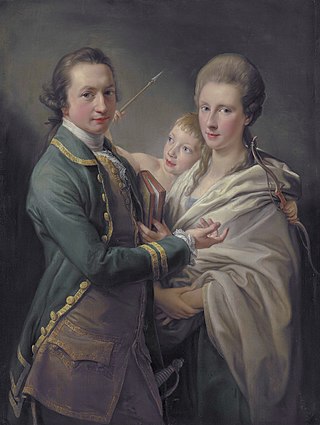
Arthur Saunders Gore, 2nd Earl of Arran, KP, PC (Ire), styled The Honourable Arthur Gore from 1758 to 1762 and Viscount Sudley from 1762 to 1773, was an Irish peer and politician.
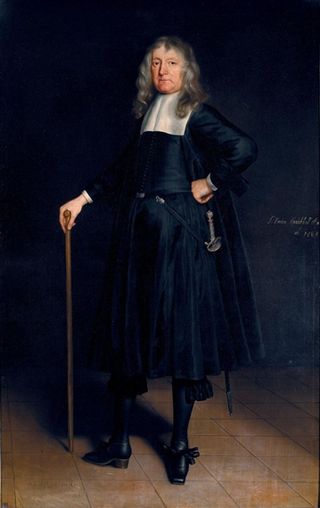
Sir Norton Knatchbull, 1st Baronet was an English politician who sat in the House of Commons at various times between 1640 and 1679.
Sir Charles Nicholas Mander, 4th Baronet is a British baronet, historian and businessman.
There have been two baronetcies created for persons with the surname Williamson, one in the Baronetage of England and one in the Baronetage of the United Kingdom.
There have been six baronetcies created for persons with the surname Thomas, three in the Baronetage of England, one in the Baronetage of Great Britain and two in the Baronetage of the United Kingdom. Two of the creations are extant as of 2016.
There have been four baronetcies created for persons with the surname Temple, two in the Baronetage of England, one in the Baronetage of Nova Scotia and one in the Baronetage of the United Kingdom.
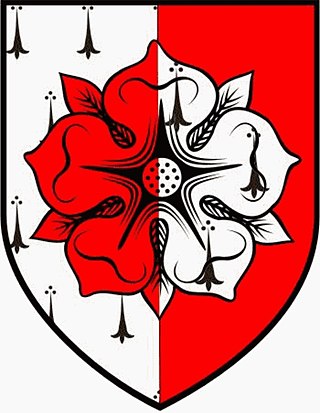
The Nightingale Baronetcy of Newport Pond is a title in the Baronetage of England and a rank in the British aristocracy. It was created by King Charles I of England, on 1 September (1628), and is one of the oldest baronetcies to remain active in England.

The Wake Baronetcy, of Clevedon in the County of Somerset, is a title in the Baronetage of England. It was created on 5 December 1621 for Baldwin Wake. The sixth Baronet assumed the additional surname of Jones but died childless. The eighth Baronet sat as Member of Parliament for Bedford. The twelfth Baronet was High Sheriff of Northamptonshire in 1879. The thirteenth Baronet was a Major-General in the British Army. Another member of the family to gain distinction was Charles Wake, second son of the tenth Baronet; he was an Admiral in the Royal Navy.

There have been two baronetcies created for persons with the surname Goring, both in the Baronetage of England. The second creation came into the family through a special remainder in the patent creating the baronetcy. Only the latter creation is extant as of 2008.

Sir William James Ingram, 1st Baronet was a British journalist and Liberal politician who was managing director of The Illustrated London News and who sat in the House of Commons in three periods between 1878 and 1895.
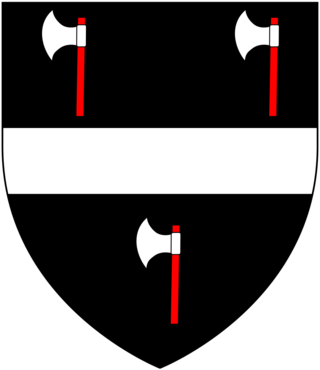
Sir William Wrey, 1st Baronet of Trebeigh, St Ive, Cornwall and North Russell, Sourton, Devon, was High Sheriff of Cornwall in 1598 and was created a baronet by King Charles I in 1628.
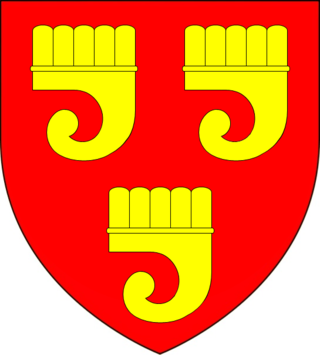
Bernard Granville of Birdcage Walk, Westminster, and Apps Court, Walton-on-Thames, Surrey, a member of an ancient and prominent Westcountry family, was a courtier of King Charles II who served as a Member of Parliament for several Cornish constituencies.
Sir John Frederick, 5th Baronet (1750–1825), was a British politician who sat in the House of Commons between 1774 and 1807.














